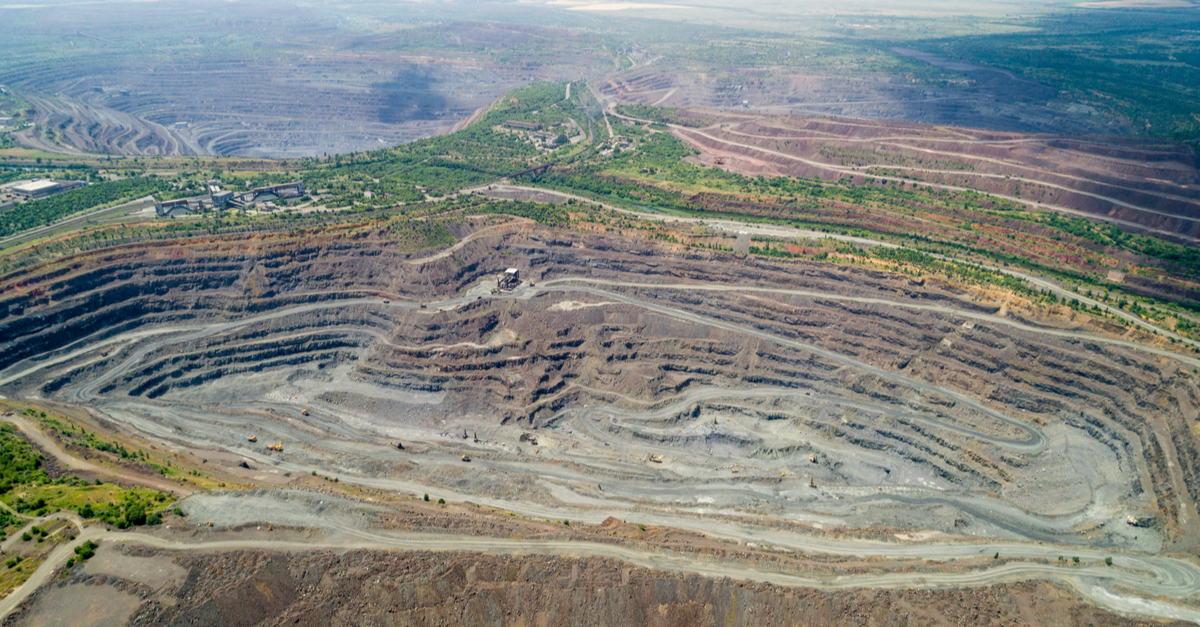
Opinions State government 815 29 July 2022
Amendments to the Cabinet of Ministers Resolution No. 615 prohibit the postponement of the deadlines for the program of works on the subsurface area
On July 26, the government adopted changes to the Procedure for granting special permits for subsoil development. Officials believed that this would make it easier for subsoil users to access the subsoil. However, there is one “but”. Amendments to Resolution No. 615 prohibit the postponement of the deadlines for the program of works on the subsurface area. Why is it risky and a threat to mining companies?
Current state of the industry
In April, some enterprises resumed work, but they are operating at only 40-50% capacity due to complicated logistics and sales. Currently, more than 50% of mining enterprises do not work.
We will be able to see the exact figures in a few months, when we will have all the data on the number of non-working mining enterprises and the reduction of jobs. After all, if the troops of the Russian Federation advance even further, those enterprises that are still operating will also stop.
Factories in Eastern Ukraine were almost completely destroyed. Losses of only the steel industry of the region reach more than 50%. Temporarily occupied regions accounted for 55% of steel revenue in 2020. Ilyich Iron and Steel Works of Mariupol and Azovstal were destroyed – they accounted for 30% of Ukrainian ferrous steel industry. The Avdiyivka Coke Plant, the largest enterprise in the industry, was damaged and stopped.
There are no former incomes from salt mining. Artemsil – the largest salt production company in Europe – stopped its work in April due to hostilities. The stock of finished products was shipped back in April. Now salt is mined only in the west of Ukraine – in Drohobych.
Under such conditions, the mining industry is literally on the brink of failure, so it needs support from the state. Especially considering the taxes paid by subsoil users.
The mining industry brought more than UAH 90 billion to the Ukrainian budget in 2020. In second place is the processing industry with an indicator of UAH 86.1 billion. These are the biggest sources of filling the state budget.
Benefits for subsurface users… or vice versa?
On February 10, 2021, the President of Ukraine, Volodymyr Zelenskyi, signed the so-called Investment Law, the purpose of which was to attract significant investments to Ukraine (in particular, in the mining and processing industries), increase its attractiveness for domestic and foreign investors, employment of Ukrainian citizens, etc.
The law has been in effect for more than a year, but, apparently, it has not globally solved the investment problems of the extractive industry. Moreover, subsoil users hoped that in the face of a full-scale invasion, the industry would be supported and some taxes will be reduced. But it seems that the Cabinet of Ministers may introduce new restrictions for subsoil users.
On July 22, the Cabinet of Ministers was supposed to consider changes to the Procedure for issuing special permits for the subsoil. This did not happen then, and it gave subsoil users at least some hope that those who are currently working, developing plots in the territories controlled by the Armed Forces of Ukraine, extracting, exporting, will not have to close down. And that the government will go to the business that pays taxes.
Hope disappeared on July 27, when the Cabinet of Ministers approved changes to the Procedure for granting special permits for subsurface mining, calling them “simplifying access to subsurface mining.” But this was not in the last edition of the text of the resolution. Instead, there was a ban on postponing the deadlines for the work program in the subsurface area.
Unhelpful changes
To understand how harmful the adopted changes can be, let’s consider the steps that subsoil users go through before receiving income for export products:
- investment in geological exploration;
- purchase of permits for exploration and production;
- equipment costs and employee salaries;
- logistics costs.
It was before the war. And now it is even more difficult to solve these issues, the problems are even more acute. Moreover, according to the new changes, it is almost impossible to complete the work program on time. There is a war in the country, and therefore it is almost impossible to attract investments, logistics is partly very difficult due to blocked ports.
Therefore, even those enterprises that extract minerals that are in demand on the European market, often cannot export them, and therefore do not receive income to cover costs. Against this background, businesses are simply closed. This especially applies to those who started working shortly before the war.
Add to these problems the changes adopted by the government – and the mining industry will simply die. And this is a minus of taxes, a minus of covering one’s own needs in minerals. Our association has requested a comment from the persons responsible for the drafting and adoption of the resolution, but has not yet received a response.
There will be no foreign investors
Hardly anyone would want to invest in an enterprise with doubtful profitability during military operations. Why doubtful? Because every enterprise can find itself in the occupied territory, and then taxes will have to be paid not to Ukraine, but to the Russian Federation, and this is too unattractive a prospect.
Subsoil users invest millions in exploration, purchase of permits and geo-information, acquisition of land, mining right-of-way, construction of pits, communications, equipment, etc. The costs last for years and are not covered by the profits. This is a long game that constantly requires investment. And it is unlikely that any of the foreigners will want to invest in the country’s mining industry with such simplifications.
Updating legislation
The profile legislation was and remains imperfect (the above-mentioned Procedure for granting special permits was amended 11 times in 11 years!), and the Subsoil Code was adopted back in 1994 and is in urgent need of updating.
Of course, the Code should be updated, but it is much more important today to preserve the extractive industry at least at the current level, and not to finish off with “changes” the sector that pays rent and other taxes and generally brings the largest amount of funds to the state budget.
But the state, it seems, has a different goal – not for the benefit of the largest taxpayers. Accordingly, the resolutions are not aimed at development, but at the decline of the industry. Naftogaz’s default today, and the collapse of the entire mining industry tomorrow?






